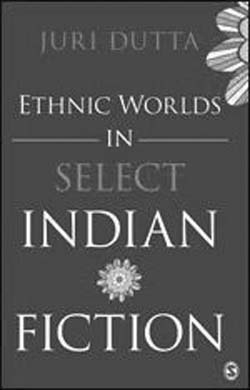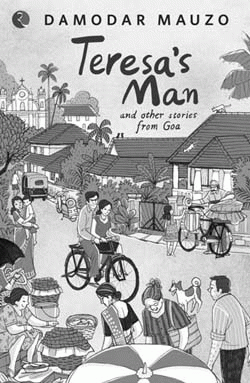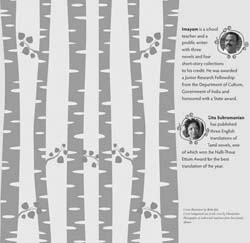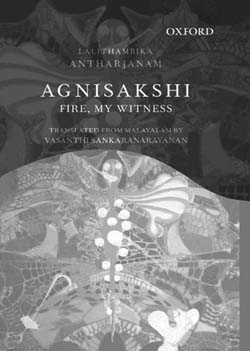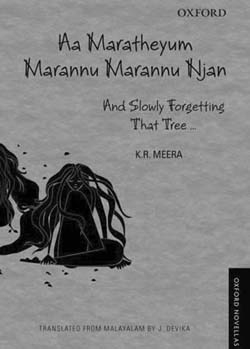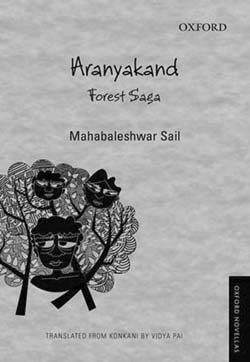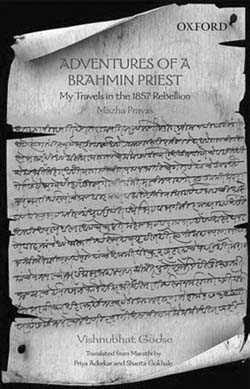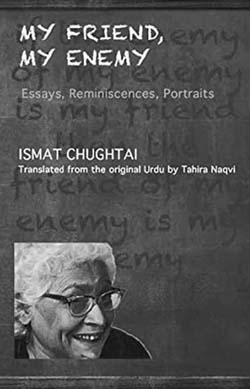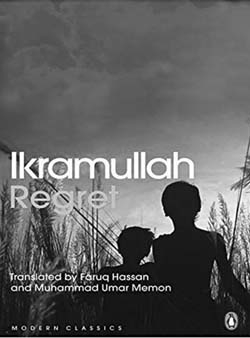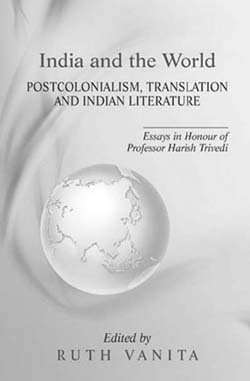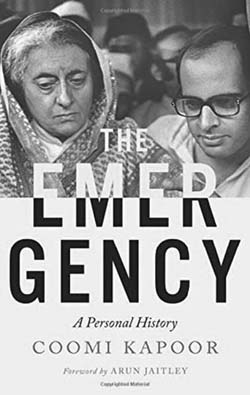Peter Pannke, the author, a German from Cologne, stumbled across an L.P. re cording of dhrupad maestros Nasiruddin and Aminuddin Dagar made by the legendary Alain Danielou in the 1960s for UNESCO. Something about the music struck a chord, he was reminded of free-flowing blues and jazz vocalists.
Archives
August 2015 . VOLUME 39, NUMBER 8n the Preface to his book, A Gathering of Friends, Ruskin Bond mentions his critics, the ones who have sometimes felt that his stories are less stories, more character sketches, for want of a plot. In his inimitable style, with gentle humour, he points out, that life doesn’t come with a plot. One can imagine him, glint in his eyes from the witticism, continuing tell the everyday tales of life, from the observable and plausible, to the fantastical. Bond has been an intrepid chronicler of life in the slow lane.
2017
Land and its acquisition being a hot topic in the media today, this book comes as another reminder of the rights of those who originally owned the lands. As the author says, ‘For thousands of years the black people thrived in the jungles, walking barefoot, wearing a loincloth and eating fruits and leaves.
Ethnography can be defined as the systematic study of people and cultures—an exploration of cultural phenomena from the point of view of the subject of the study. By this definition, a large amount of literature that we read is indeed ethnographic and diverse, even though it may only be a documentation instead of a faithful and authentic representation.
The book appears at first glance to be undecided about its genre or raison d’être: is it a novel or an essay? Does it wish to tell a story or discuss/debate women’s issues? Being an award-winning book notwithstanding, this disconnect stays with the reader throughout the book.
2015
Galpaguchha means a ‘Bunch of Stories’. And that’s the offering we have in hand here—a varied bouquet of short stories selected from Rabindranath Tagore’s distinguished collection, translated by Dipavali. Some of the flowers of this bunch are fragrant with an all-pervasive sweetness, while others border on the wild and even macabre. But all are thought-provoking portraits of life, tinged with the wisdom of human observation.
2015
If Bhai (as Damodar Mauzo the Konkani writer and Sahitya Akademi award winner is fondly known in Goa) isn’t already in the canon of the great contemporary Indian short story writers, his nomination to the long list of the 25,000 Frank O’Connor Short Story Prize, one of the richest Short Story Collection prizes in the world, for Teresa’s Man and Other Stories from Goa, 2014 issued by Rupa, indicates that he’ll be arriving there quite soon.
2015
Joothan: A Dalit’s Life has been reprinted in 2014 with an addition, ‘Remember ing Omprakash Valmiki’. This is the third reprint. The English translation of this originally Hindi book was first published by Columbia University Press at New York, as also by Samya at Kolkata in 2003. Omprakash Valmiki passed away in 2013, after fighting a two year battle with cancer.
Literature popularly defined as a mirror of society gets a radically different meaning in the novella, Pethavan by Imayam, published recently in English translation. The myriad functions of caste in Indian society got unveiled through this brilliant literary piece by a master story-teller. It invites us to read ourselves and our society vis-à-vis caste.
2015
The Tamil novel, Koogai by Cho. Dharman, in English translation by Vasantha Surya invites us to read it within the ongoing debates over region-nation dilemma of Indianness.
2015
Devanoora Mahadeva’s Kusumabale, ever since it was serialized in a Kannada magazine in 1984 and later published in book form in 1984, has evoked mixed responses from readers, activists and critics. However, everyone agrees that it is a great text, a classic in fact, unprecedented in its treatment of dalit experience both in its form and content.
Lalithambika Antharjanam’s work and life are ineluctably linked with the large-scale social and economic changes that Kerala experienced in the twentieth century.
K.R. Meera’s And Slowly Forgetting That Tree begins with an innocuous everyday scene that turns rapidly unreal.
2015
My first thoughts on reading Apeetha in English is to wonder how a text considered difficult in terms of language in the original Tamil, reads with such an easy flow in English! The reverse is also usually true. Bharathiyar, who sounds poetically rich in Tamil becomes bland in English, most often. Padma Narayanan, who had already translated two stories of La. Sa. Raa (1916–2007) earlier, even while he was still alive, has translated this novella.
‘A man does what he must—in spite of personal consequences, in spite of obstacles and dangers, and pressures— and that is the basis of all human morality.’ John F. Kennedy. ‘We could do it, you know.’ ‘What?’ ‘Leave the district. Run off. Live in the woods. You and I, we could make it.’ When Suzanne Collins wrote this in The Hunger Games, she probably was unaware of the kind of forest that exists in Forest Saga.
Nirgatasu na va kasya kalidasasya suktisu Pritir madhura—sandrasu manjarisu iva jayate Pleasure blooms in Kalidasa’s poems, Like a full bouquet of fragrant flowers! —Banabhatta’s Harsa-carita
2015
A.N.D. Haksar, formidable, versatile and prolific translator of Sanskrit texts, gives us a gentle and very sweet version of Arya Shura’s Jatakamala from the fourth century, overflowing with the Buddhist virtues of generosity and compassion towards all living creatures. The translation is a reprint and we must be grateful to Harper Collins for rescuing it from wherever it had been abandoned.
It never rains but it pours. This travelogue by an indigent Maharashtrian brahmin describing his travels and travails in North India during the turbulent years 1857-60 and encompassing in particular the events in Jhansi, first published in Marathi in 1907, has now been translated into English three times within the last four years.
After praises to God and the Prophet here is some good news for the voyagers of endless oceans and wonders of the world, and explorers of desolate and magnificent destinations of deserts and mountains that, in these delightful times…
2015
Born in 1880 in the Pairaband village of Rangpur—not Rampur as the volume under review states (p. 269)—a district of eastern Bengal, Rokeya Sakhawat Hossain grew up within the confines of a large upper class Muslim family headed by an orthodox father. Rokeya and her sisters were denied, unlike their brothers, formal education, or any education for that matter. Not only that, even the informal speaking and learning of the Bangla language was heavily discouraged; the English language, needless to say, was completely out of their reach.
Some writers are fortunate enough to have a second innings not too long after their first flush of fame. Ismat Chughtai, who enjoyed the dubious distinction of sharing the tag of Urdu’s best-known enfant terrible with her friend and fellowwriter Manto, is one such writer.
As one opens this book showcasing two novellas from Pakistan and flips through the first few pages of each, one has no doubt that this is first rate writing from South Asia. A couple of years ago, Salman Rushdie had bemoaned the paucity of writing from the Indian subcontinent in good English translation.
In academia, a festschrift is a volume of writings by different authors presented as a tribute or memorial especially to a scholar, and presented during his or her lifetime. The term, borrowed from German, could be translated as celebration publication or celebratory (piece of ) writing.
Let me, at the very outset, make a set of declarations. The author is a good friend of mine from my days at the Indian Express in the 1980s and I know various members of her family very well. Also, it was her husband, Virendra, who brought me into journalism from publishing where I was ruminating on a boring future in a dying industry.




